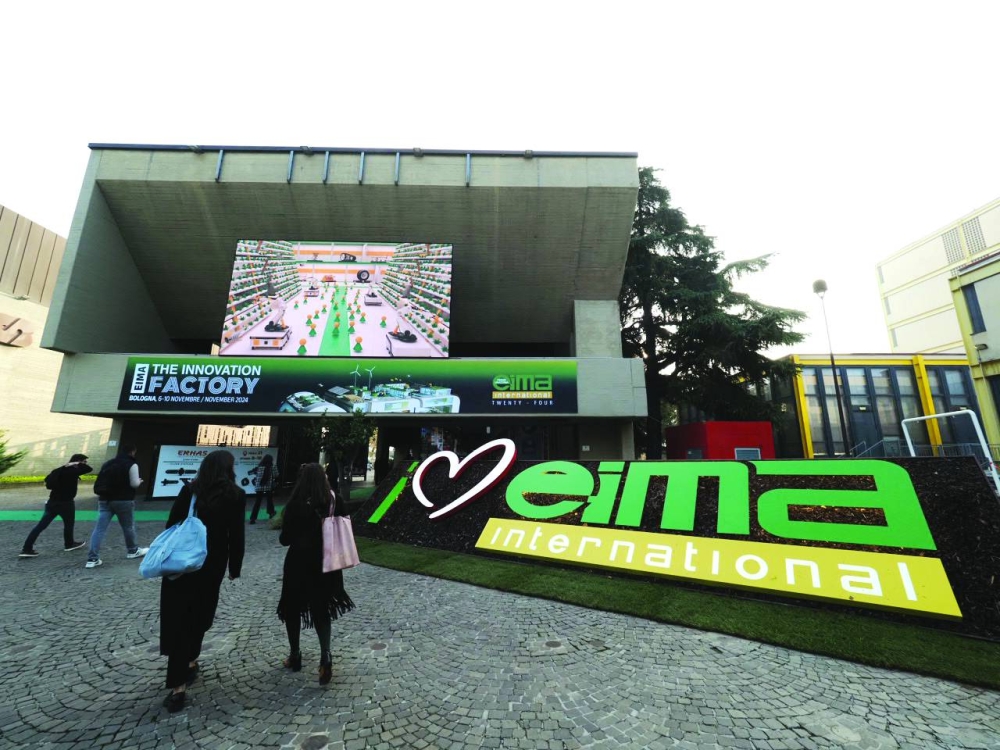Bologna, Italy: The top official of the Cia-Agricoltori Italiani (Italian Farmers Confederation) has called for innovation and mechanisation to address major challenges for farms, such as balancing reduced inputs and soil fertility, reflecting the need to transition to more sustainable, regenerative farming practices.
Cia president Cristiano Fini’s statement came at the heels of a ‘Agromechanical Industry Technologies, Professional Skills, and Markets: New Challenges for the Agricultural Enterprise’ conference held on the sidelines of EIMA International 2024, which concludes on November 10 at the Bologna Exhibition Centre.
Moderated by Piero Fachin, co-editor of Quotidiano Nazionale, the conference was also attended by Mariateresa Maschio, president of FederUnacoma; Francesco Lollobrigida, Minister of Agriculture, Food Sovereignty, and Forests; Valentino Valentini, Deputy Minister for Business and Made in Italy; Matteo Zoppas, president of the ICE Agency; and Luca Brondelli, vice president of Confagricoltura.
The conference tackled topics and challenges facing the global and domestic agriculture industry, such as technological innovation, training, support for investments in the latest-generation machinery, and the promotion of “Made in Italy” products on global markets.
The event also underscored that the investments in technology are a key factor for the Italian agricultural economy in increasing yields, optimising the use of production factors, and improving the quality of foodstuffs. However, these investments are held back by the sector's low profitability, the conference further emphasised.
Fini said: “Our farms have to reduce inputs and, at the same time, counteract the loss of soil fertility. It is a very complex challenge that has environmental and social implications. To overcome it, we must focus on innovation and mechanisation, which have already enabled us to navigate complex economic phases in the past. However, low farm incomes do not facilitate investment in advanced machinery, which must instead be made accessible to operators.”
The conference pointed out that the high cost in raw materials, especially energy, is driving the increase in production costs. To address this, Valentini emphasised the Italian government’s plans to reintroduce nuclear energy. "We reiterate that we are in favour of this solution. It is on the EU agenda and it is an objective for the Italian government. We are working to arrive at concrete proposals soon,” the deputy minister stressed.
Meanwhile, Brondelli spoke on the importance of innovation in training, saying: “The latest generation of mechanical equipment has very advanced features that increase productivity and safety levels at work but at the same time require highly specialised skills. I am thinking, for example, of the enormous amount of data collected by the machines. These data are essential for our daily work, but they must be studied, analysed, and shared based on specific know-how.”
Zoppas added: “Training is also of strategic importance for the promotion of ‘Made in Italy’ products on global markets.”
The conference noted that supporting investments in new-generation machinery is necessary even in the face of an unfavourable economic situation. The strategic role of training and cooperation is crucial not only to promote Italian-made products in global markets but also to overcome the “two- or three-speed” model of agriculture.

Participants of the EIMA International 2024 entering the exhibition area.

